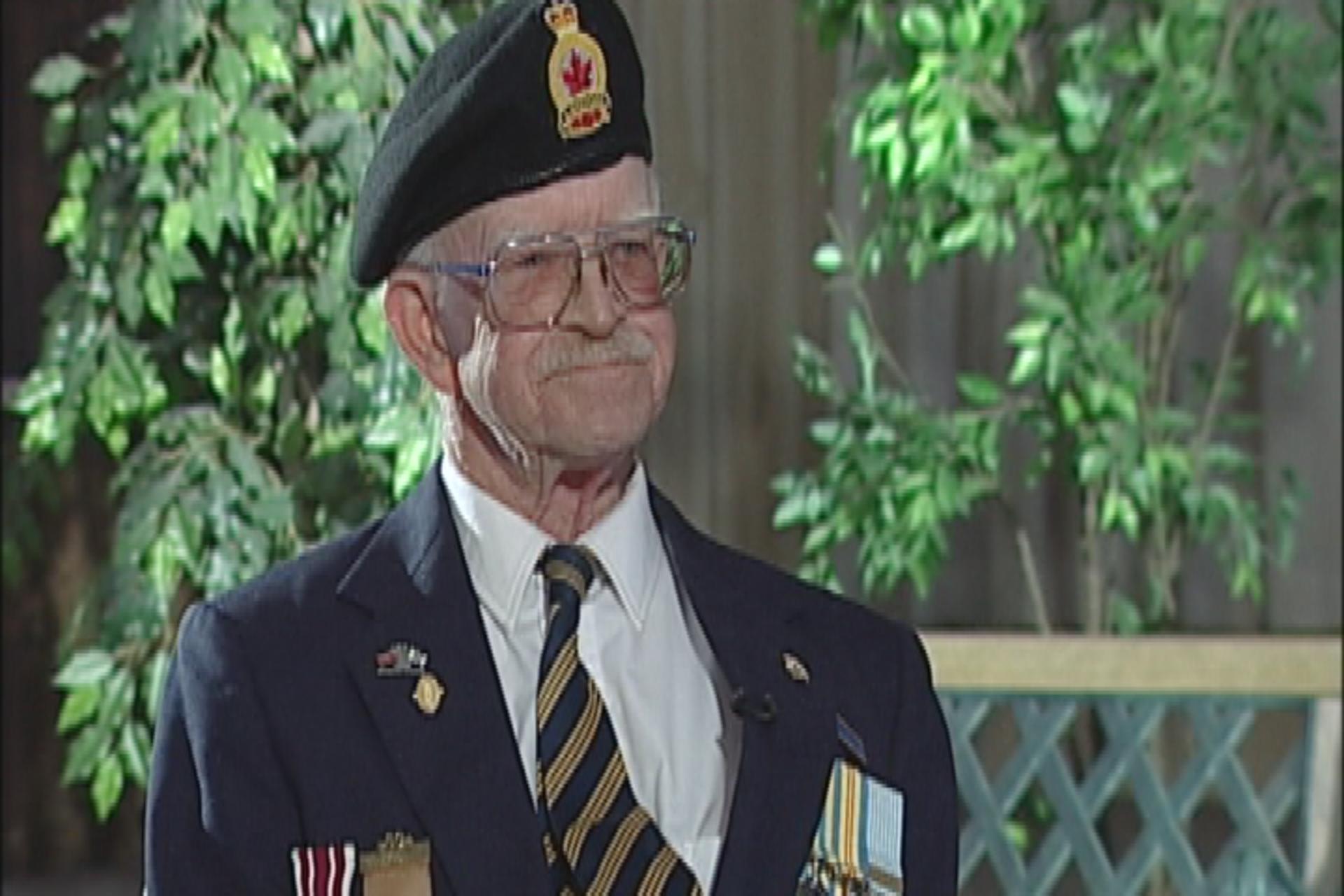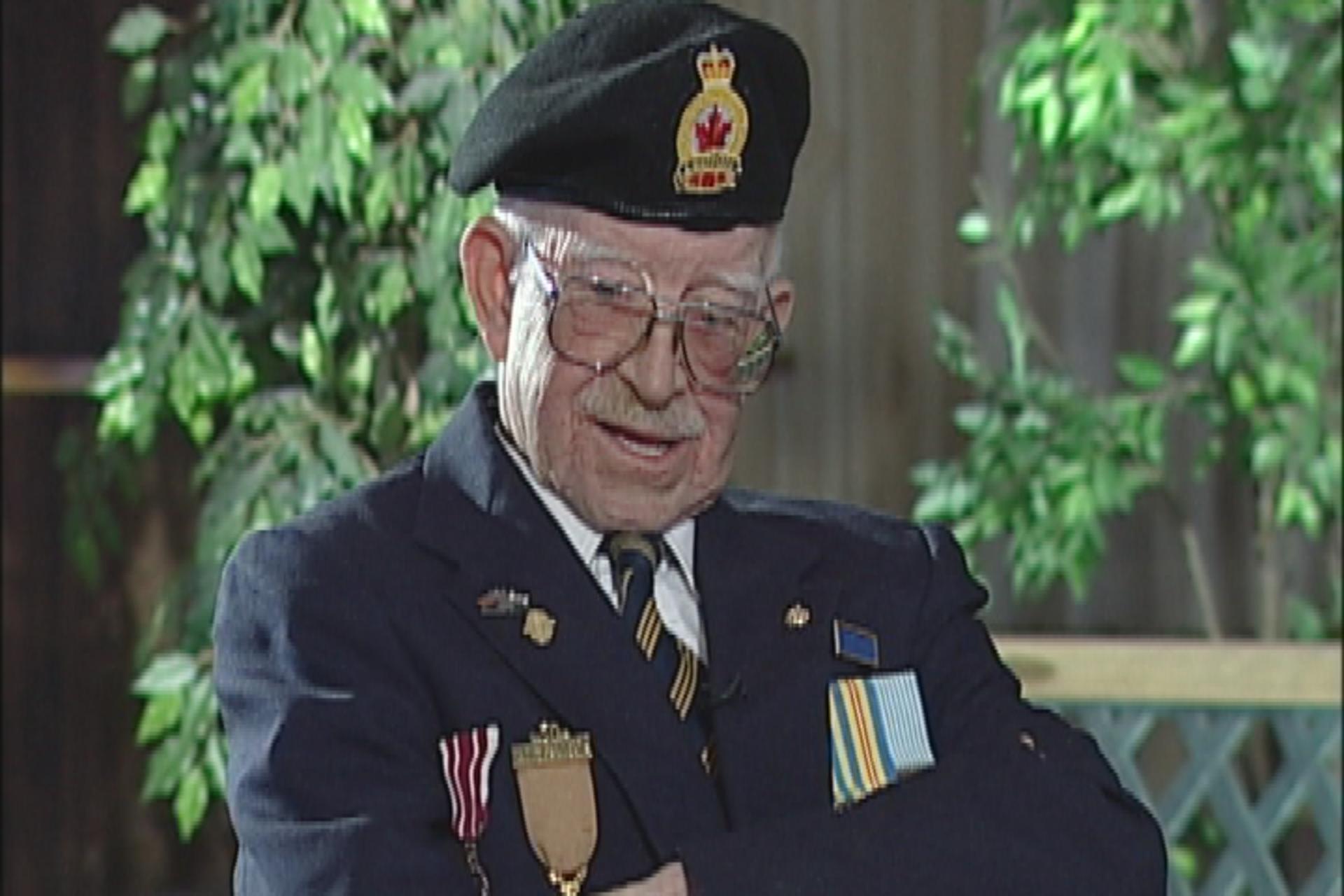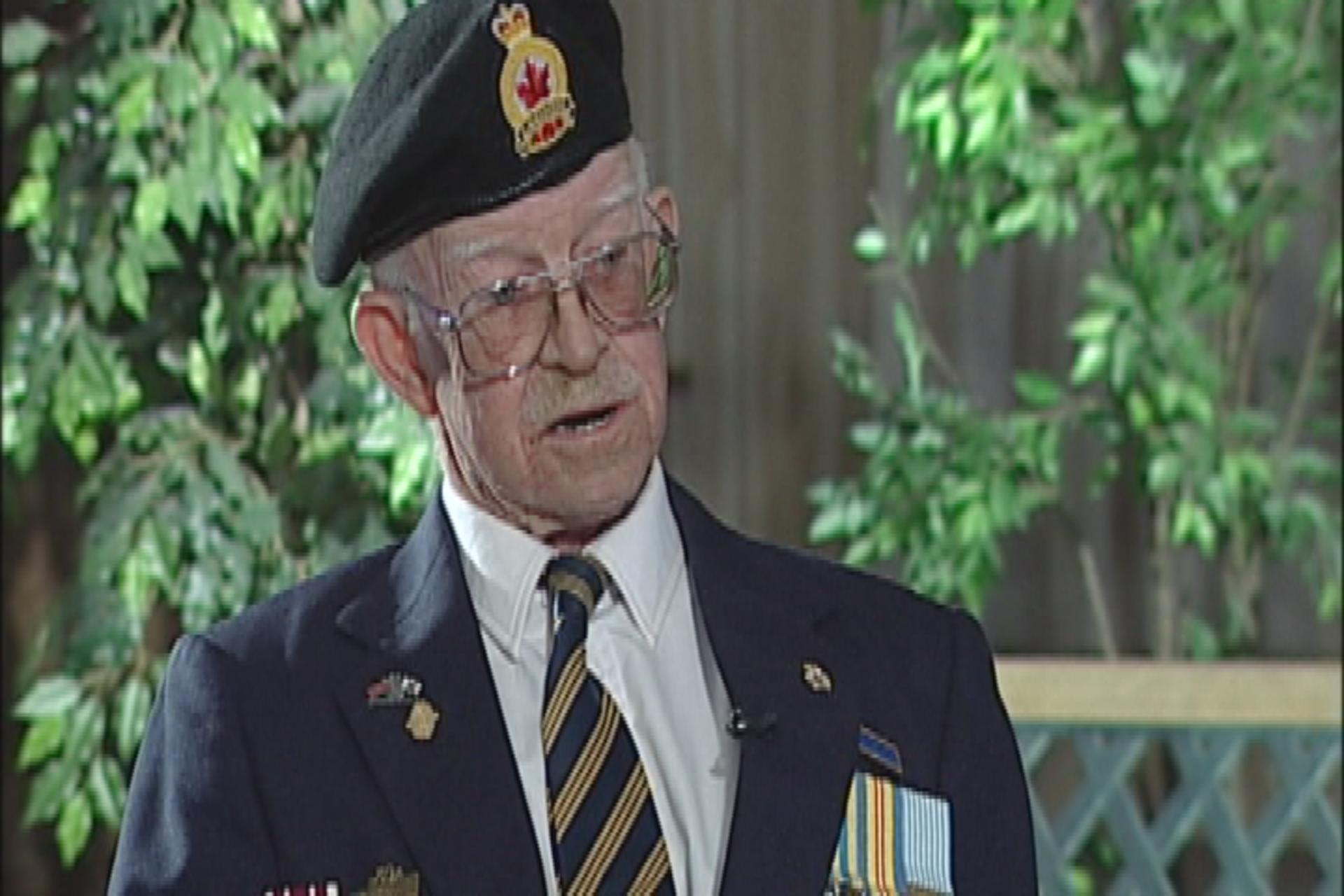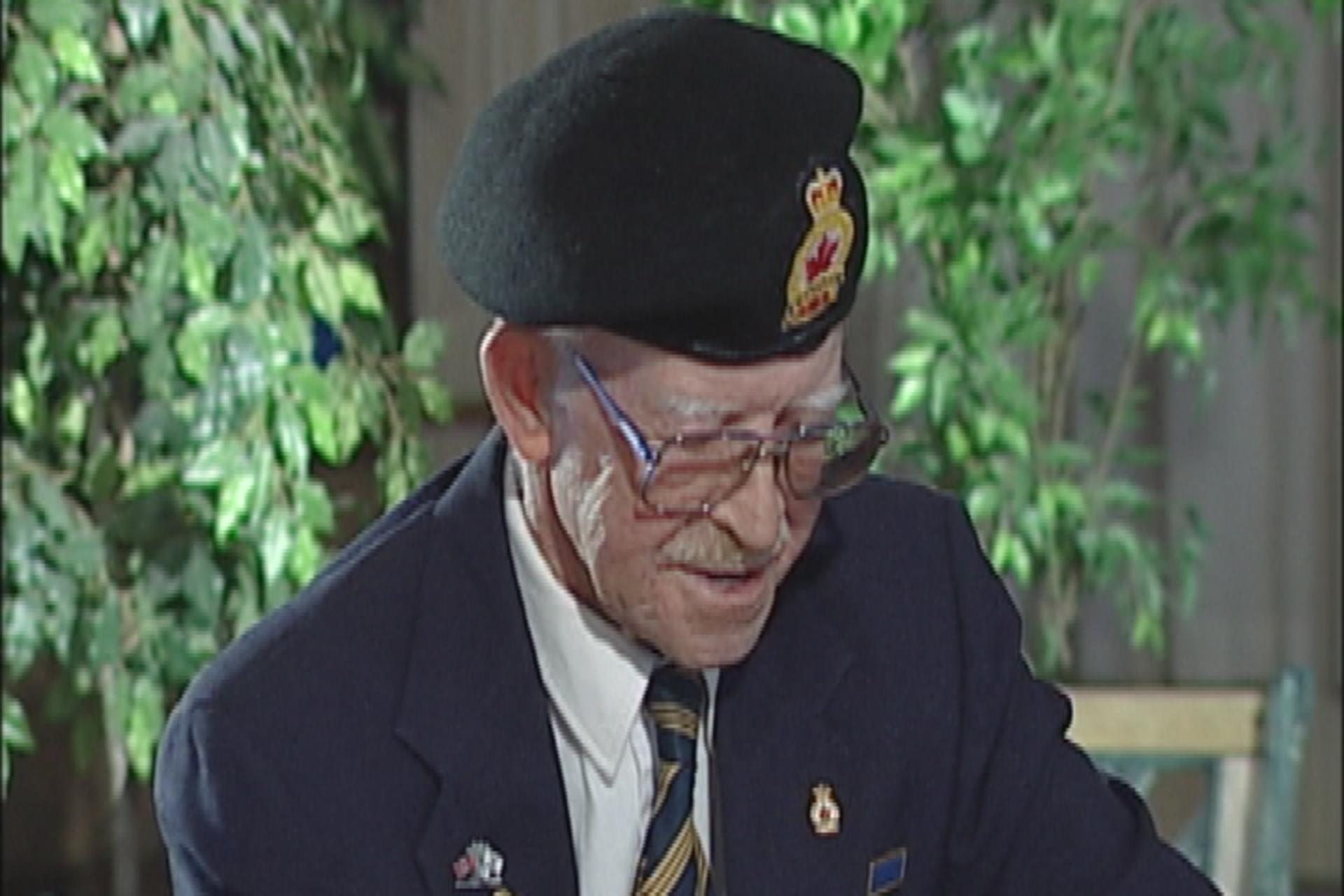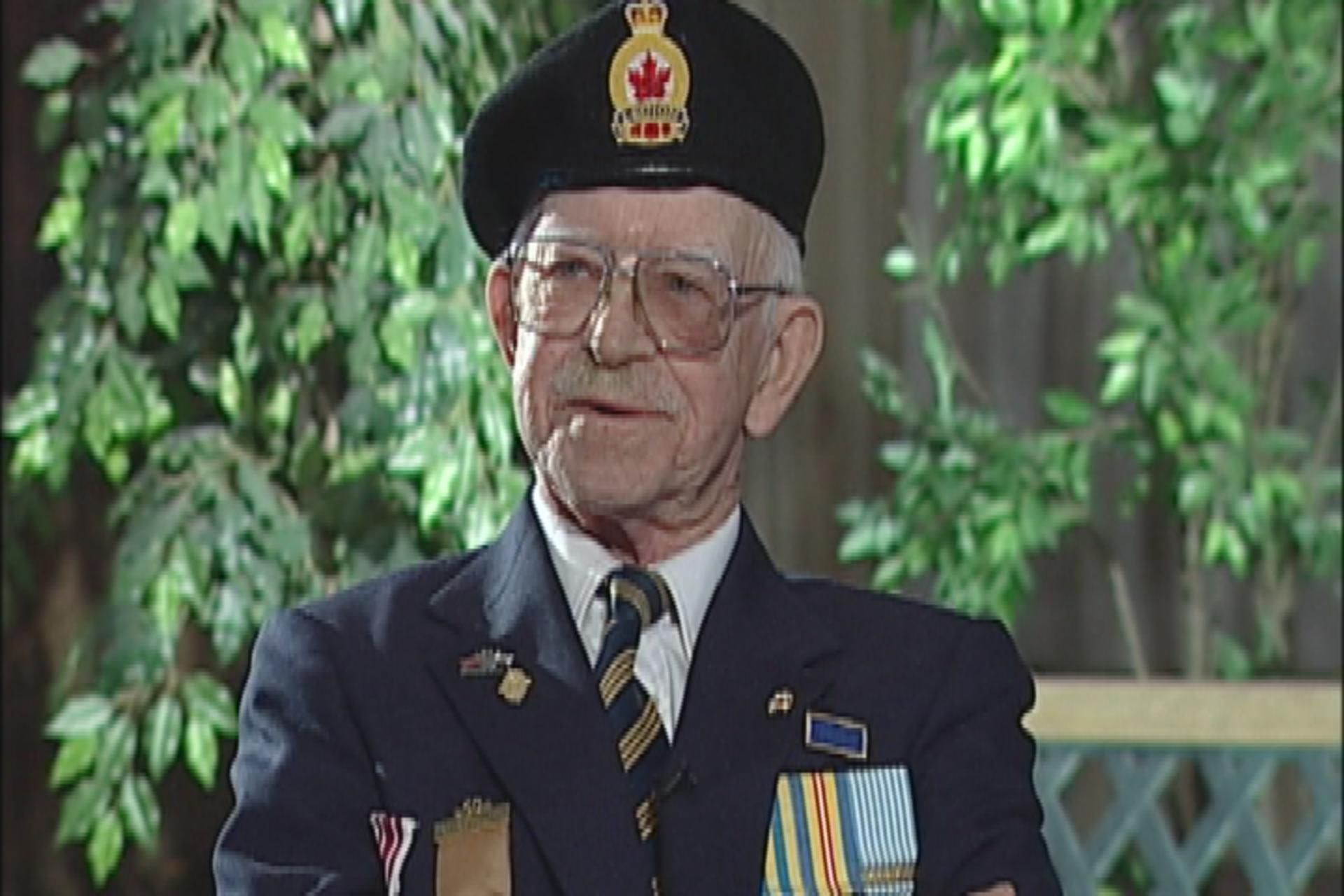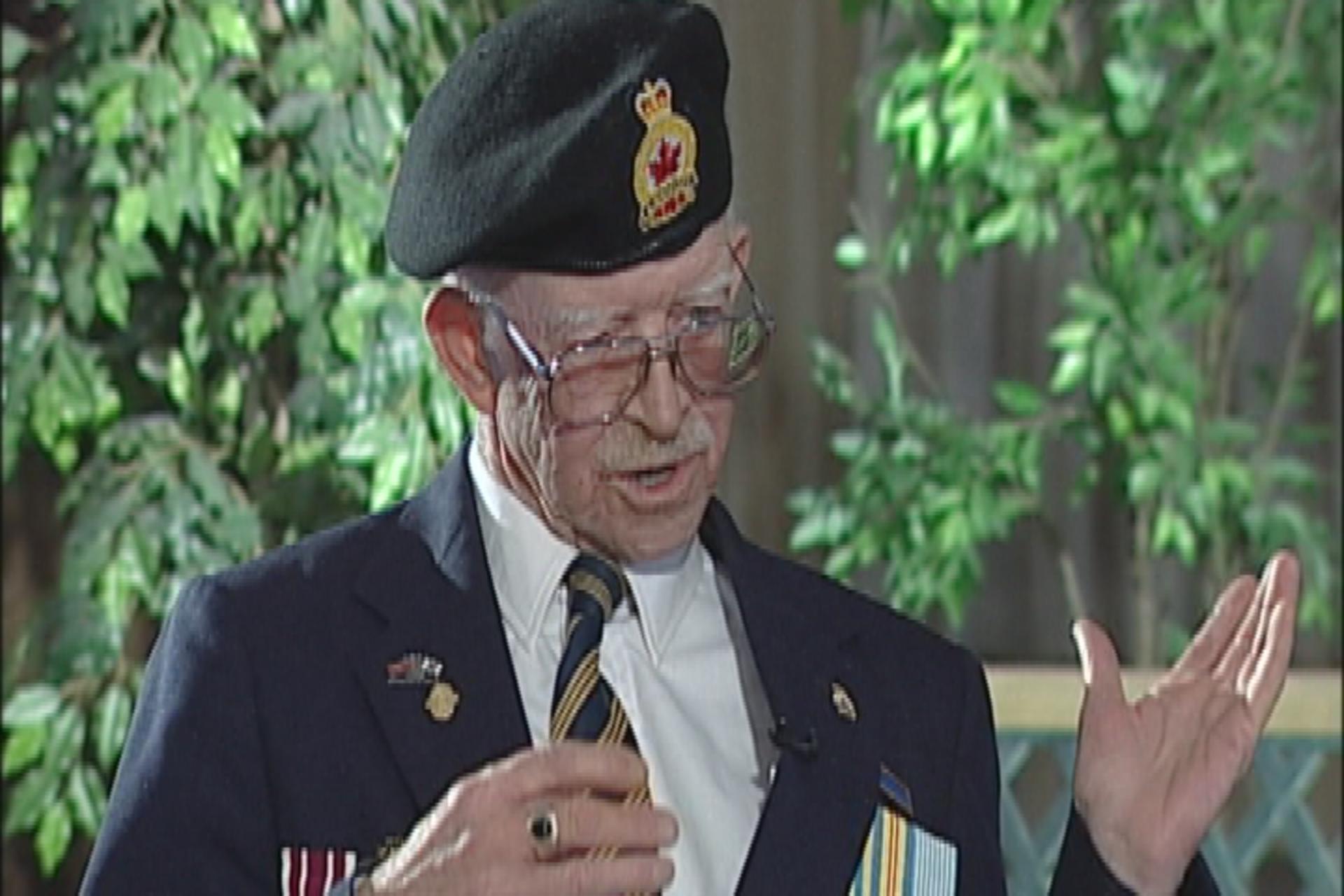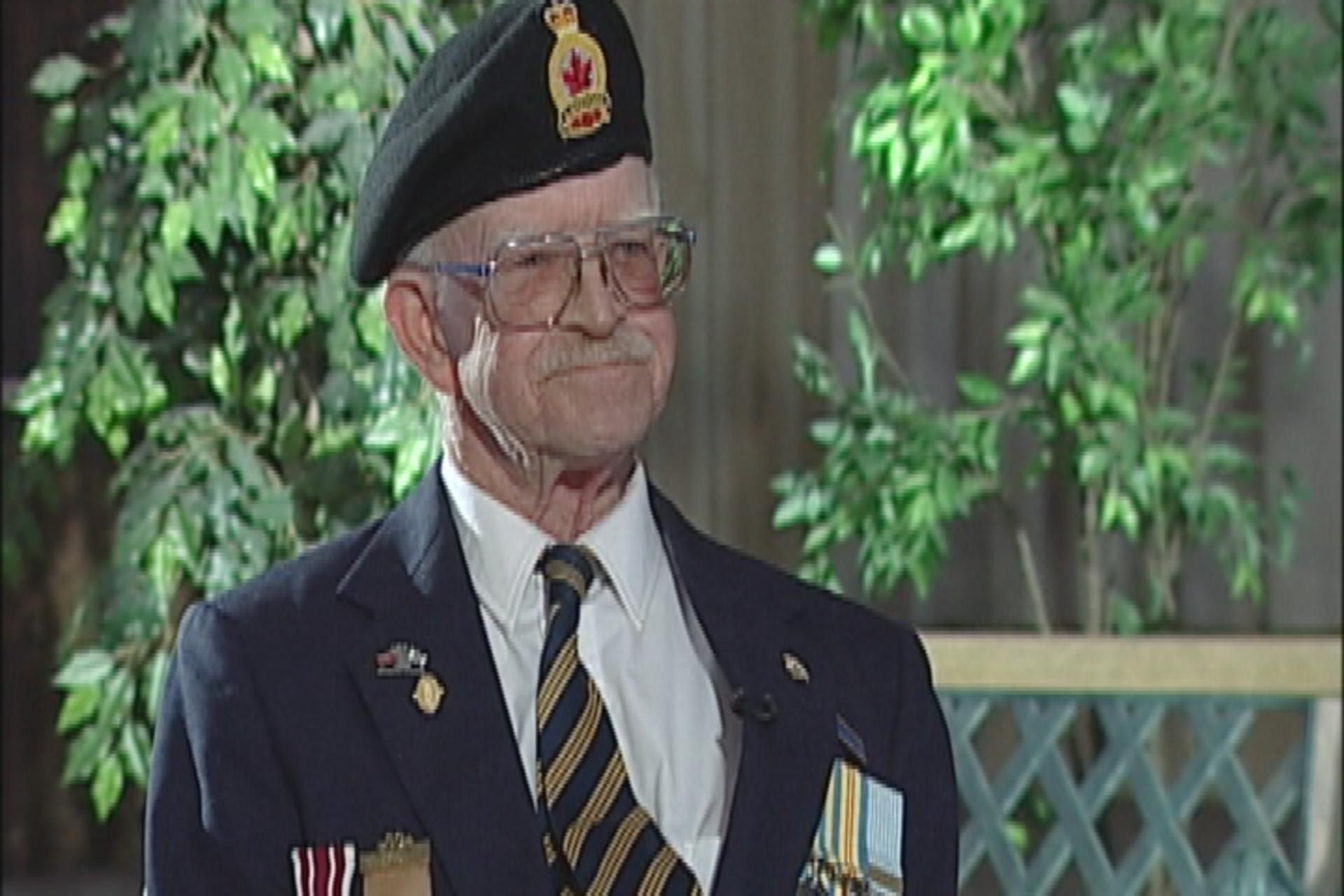Communism Stopped, War Not Ended
Heroes Remember
Communism Stopped, War Not Ended
Transcript
Description
Mr. Gowing discusses the pushing toward the Chinese border, only to fall back and voices his discouragement with how the war ended with Korea; divided the same way it had been in the beginning.
Gerald Edward Gowing
Mr. Gowing was born in 1931 in Listowel, Ontario. At the age of nine, Mr. Gowing was taken in by the Stratford division of the Children's Aid Society because his mother had passed away and his father was unable to take care of him. Looking for adventure, and to take part in something with purpose, Mr. Gowing joined the army in October 1950, requesting to serve in Korea. Sent to Calgary, Alberta, for basic training at the Princess Patricia's Canadian Light Infantry (PPCLI) barracks, he was only there a few weeks before shipping overseas in January 1951 as reinforcement Bren gunner for the 2nd Battalion PPCLI. Mr. Gowing saw heavy action in Korea, including the Battle at Kapyong (Hill 677) for which the entire battalion was later presented with a Presidential Citation medal, the highest award granted by the United States, outside of the US. Reluctant to return to Canada, Mr. Gowing left Korea in May 1952, after his tour had ended. He left the military in November of 1952, but returned in November of 1955, to serve as a signaller for three years before being discharged for good.
Meta Data
- Medium:
- Video
- Owner:
- Veterans Affairs Canada
- Duration:
- 04:27
- Person Interviewed:
- Gerald Edward Gowing
- War, Conflict or Mission:
- Korean War
- Location/Theatre:
- Korea
- Branch:
- Army
- Units/Ship:
- 2nd Battalion Princess Patricia’s Canadian Light Infantry
- Rank:
- Private
- Occupation:
- Bren Gunner
Related Videos
- Date modified:



